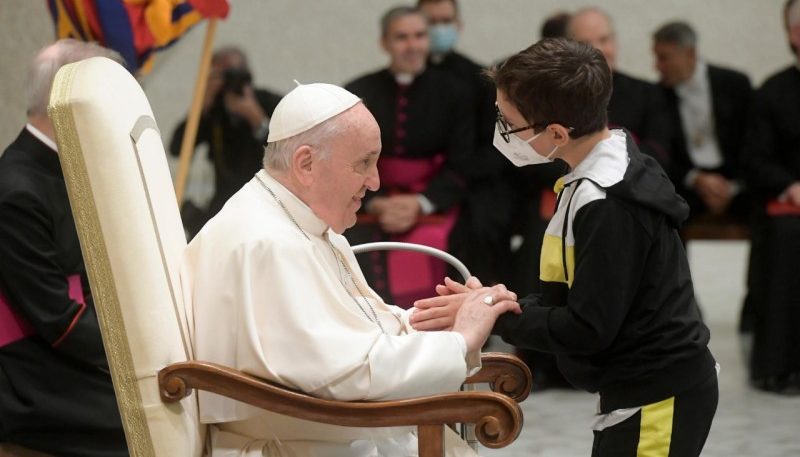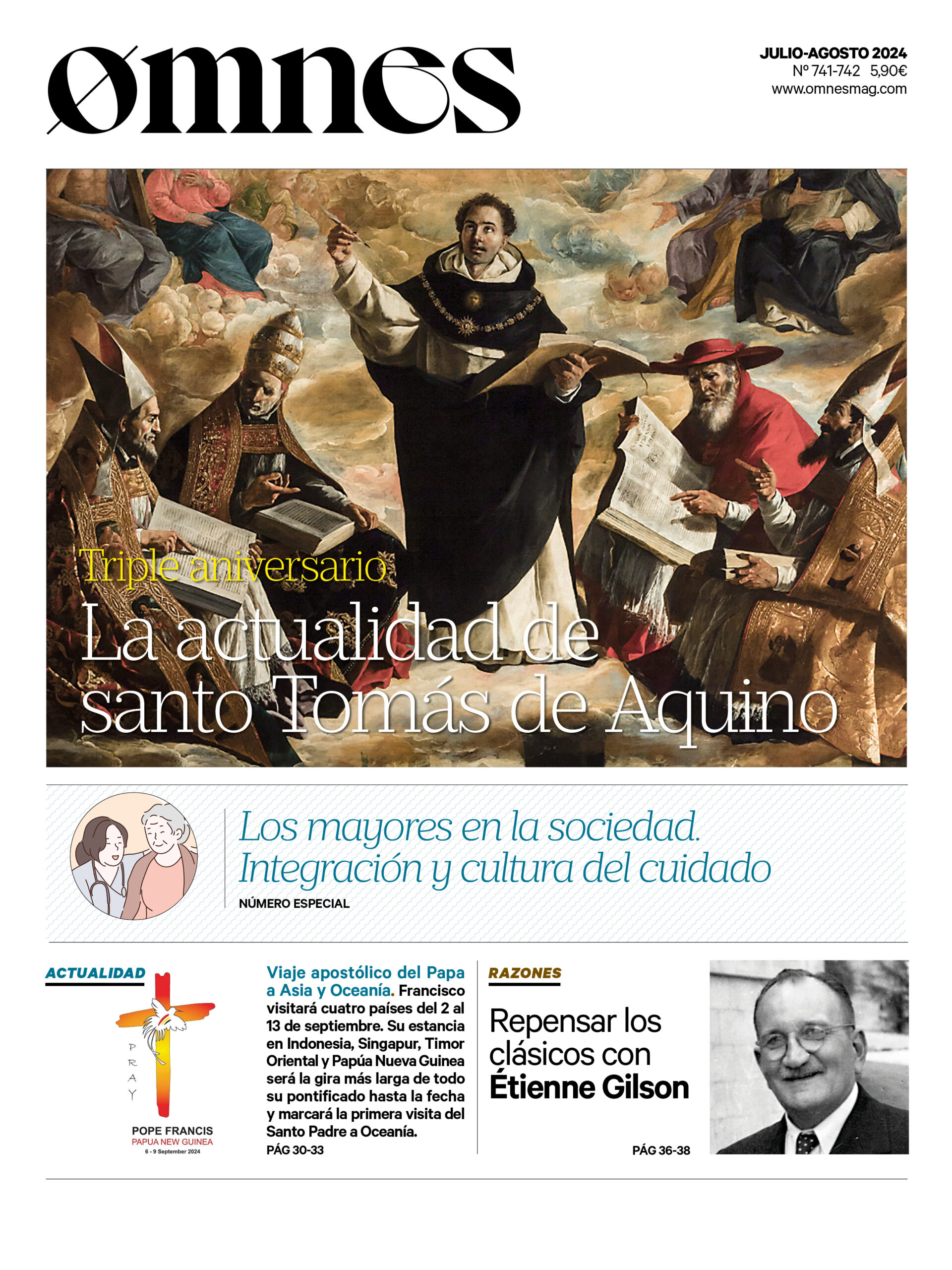









Pope Francis reflected on the core of freedom according to the Apostle Paul in his catechesis at the General Audience on Wednesday, October 20. "The Apostle Paul, with his Letter to the Galatians, little by little introduces us to the great newness of faith. It is truly a great newness, because it does not just renew some aspect of life, but brings us into that "new life" that we have received through Baptism. There, the greatest gift has been poured out upon us, that of being children of God. Reborn in Christ, we have passed from a religiosity made up of precepts to a living faith, which has its center in communion with God and with our brothers and sisters. We have passed from the slavery of fear and sin to the freedom of the children of God.
"Today," the Pontiff began, "we will try to understand better what is for the Apostle the heart of this freedom. Paul affirms that freedom is far from being "a pretext for the flesh" (Gal 5,13): freedom is not a libertine living, according to the flesh or according to instinct, individual desires or one's own selfish impulses; on the contrary, the freedom of Jesus leads us to be - writes the apostle - "at the service of one another" (ibid.). True freedom, in other words, is fully expressed in charity. Once again we find ourselves before the paradox of the Gospel: we are free in serving; we find ourselves fully in the measure in which we give ourselves; we possess life if we lose it (cfr. Mc 8,35)".
"But how is this paradox explained?" asked Francis rhetorically. "The apostle's answer is as simple as it is engaging: 'through love'" (Gal 5,13). It is the love of Christ that has set us free and it is still the love that frees us from the worst slavery, that of our self; that is why freedom grows with love. But beware: not with intimate, soap opera love, not with the passion that seeks simply what we fancy and what we like, but with the love that we see in Christ, charity: this is the truly free and liberating love. It is the love that shines in gratuitous service, modeled on that of Jesus, who washes the feet of his disciples and says: "For I have given you an example, that you also should do as I have done for you" (Jn 13,15)".
"For Paul, freedom is not "doing what I feel like doing and what I like". This kind of freedom, without an end and without references, would be an empty freedom. And in fact it leaves an emptiness inside: how many times, after having followed instinct alone, we realize that we are left with a great emptiness inside and have misused the treasure of our freedom, the beauty of being able to choose the true good for ourselves and for others. Only this freedom is full, concrete, and inserts us in the real life of every day".
"In another letter, the first to the Corinthians, the apostle responds to those who hold a wrong idea of freedom. "All things are lawful," say these. "But all things are not expedient," Paul replies. "Everything is lawful" - "But not everything edifies," replies the apostle. And he adds, "Let no one look out for his own interests, but only for the interests of others" (1 Cor 10,23-24). To those who are tempted to reduce freedom only to their own tastes, Paul places before them the requirement of love. Freedom guided by love is the only freedom that makes others and ourselves free, that knows how to listen without imposing, that knows how to love without forcing, that builds up and does not destroy, that does not exploit others for its own convenience and does good to them without seeking its own benefit. In short, if freedom is not at the service of the good, it runs the risk of being sterile and not bearing fruit. However, freedom animated by love leads to the poor, recognizing in their faces the face of Christ. This is why the service of one another allows Paul, writing to the Galatians, to emphasize something by no means secondary: speaking of the freedom that the other apostles gave him to evangelize, he stresses that they advised him to do only one thing: to remember the poor (cfr. Gal 2,10)".
"We know however that one of the most widespread modern conceptions of freedom is this: 'my freedom ends where yours begins.' But here the relationship is missing! It is an individualistic vision. However, those who have received the gift of liberation worked by Jesus cannot think that freedom consists in being far from others, feeling them as a nuisance, cannot see the human being as being incarnated in himself, but always included in a community. The social dimension is fundamental for Christians, and allows them to look to the common good and not to private interests".
"Especially in this historical moment," the Pope concluded, "we need to rediscover the communitarian, not individualistic, dimension of freedom: the pandemic has taught us that we need one another, but it is not enough to know it, it is necessary to choose it concretely every day. We say and believe that others are not an obstacle to my freedom, but the possibility to realize it fully. Because our freedom is born of the love of God and grows in charity".
A particular event occurred when, during the audience, a child climbed up to the podium of the Paul VI Hall and approached to greet the Pope. The Pontiff, as he usually does on these occasions, encouraged him to remain seated in a chair next to him. The boy seemed interested in Francis' skullcap. Finally, after a while on the dais, he went back down to his seat.












